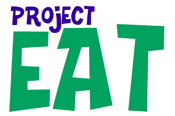 A study of intergenerational eating patterns in families conducted with the help of School of Public Health researchers and data found that young adults who didn’t have regular family meals as adolescents can still benefit from the practice by incorporating it as parents.
A study of intergenerational eating patterns in families conducted with the help of School of Public Health researchers and data found that young adults who didn’t have regular family meals as adolescents can still benefit from the practice by incorporating it as parents.
“There is little research looking at whether family meals are beneficial long term and whether they are passed on to the next generation, so we were determined learn more about how family meal patterns translate across generations,” said the study’s lead author and Associate Professor Jerica Berge from the Medical School.
The study was recently published in the journal Public Health Nutrition and co-authored by SPH researchers Allison Watts, Nicole Larson, and Professor Dianne Neumark-Sztainer. Data for the study came from the School of Public Health’s long-running Project EAT study, an analysis of nutrition, physical activity, and weight status among young people and teens.
The researchers examined the survey responses of young adult parents and non-parents for four family meal frequency patterns from adolescence into parenthood. The patterns examined included those who:
- Never had regular family meals as an adolescent or as a parent (Nevers)
- Started having regular family meals as a parent (Starters)
- Stopped having regular family meals as a parent (Stoppers)
- Maintained having regular family meals from adolescence into parenthood (Maintainers)
Researchers also looked at the associations between those four groups and their dietary intake (fruit and vegetable intake, sugar-sweetened beverage consumption, fast food intake), weight and weight-related behaviors (weight status, unhealthy weight control behaviors, binge-eating), and psychosocial well-being (depression, self-esteem) as a parent.
The study results showed that eating regular family meals in both adolescence and parenthood (15-years or later) was associated with more healthful dietary, weight-related, and psychosocial outcomes in young adult parents.
These associations were found for many but not all of the outcomes measured.
“For example, the ‘maintainer’ category was associated with less fast food intake, fewer unhealthy weight control behaviors, fewer depressive symptoms, less binge eating, and higher self-esteem in parents, but there were no significant associations between regular family meals and parent fruit and vegetable intake, sugar-sweetened beverage consumption, or weight status,” says Berge.
Additionally, the study found that young adults who were parents were more likely to start and less likely to stop having regular family meals compared to non-parents.
“The finding that it is never too late to benefit from family meals is a really powerful message and may be important for health care providers,” says Berge. “They can recommend to parents with young children… to start having regular family meals… and they will likely experience some of the health benefits that go along with it.”
